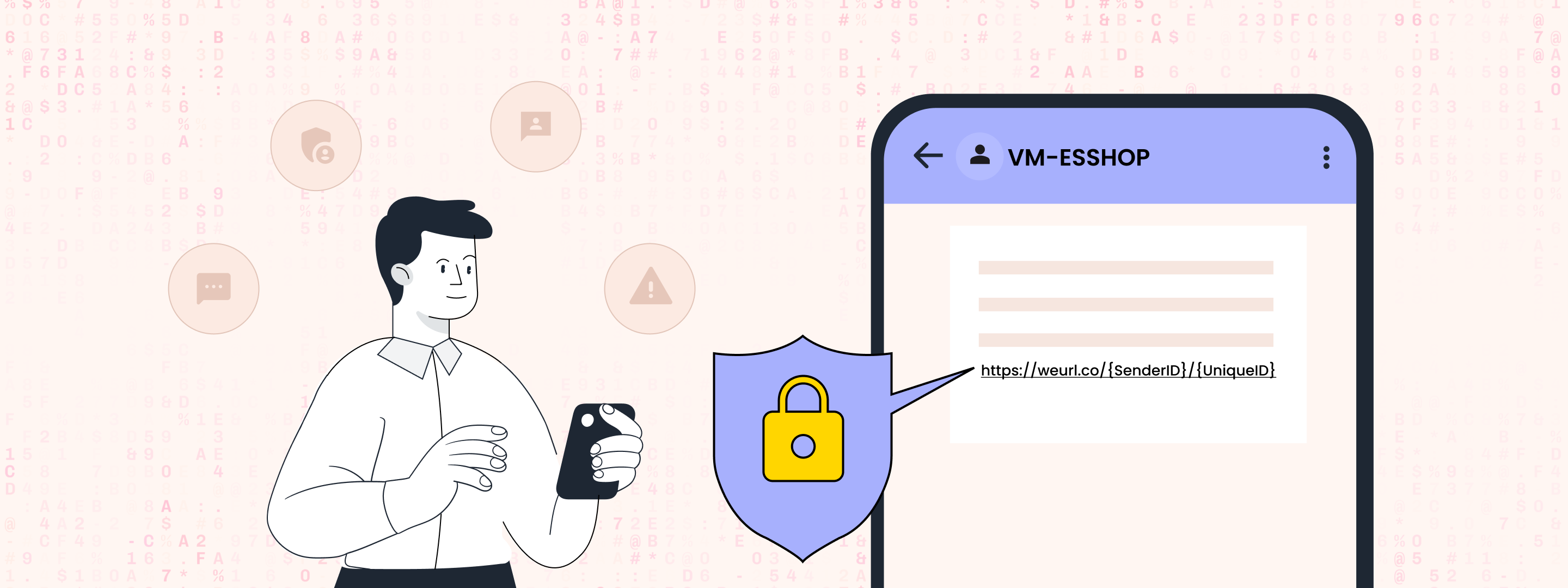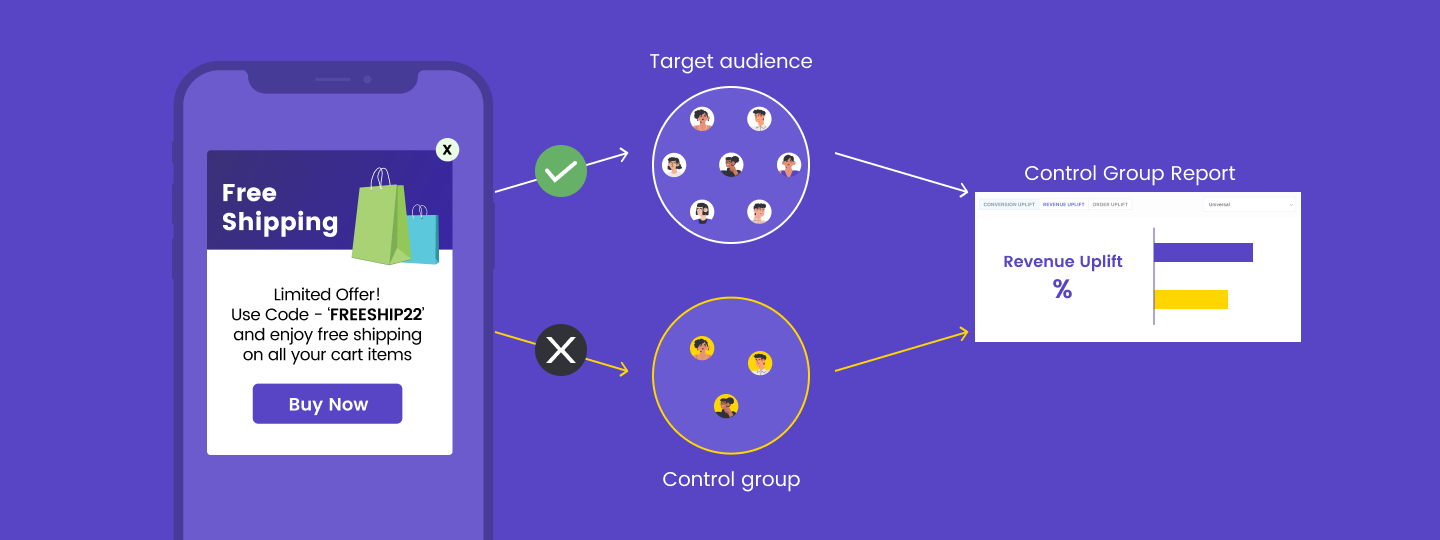About MyGlamm
MyGlamm, an online international beauty products & cosmetics brand, was founded by Darpan Sanghvi in 2012. Along with the new age color cosmetics products that MyGlamm sells, it is also an online marketplace for beauty aestheticians. Users can place orders on MyGlamm’s website, iOS, and Android app. The Mumbai-based brand has become India’s first beauty commerce startup to turn a unicorn after it raised $150 million in a Series D funding round led by Prosus Ventures (Naspers) and Warburg Pincus.
Premise
Vanity has become paramount in India. With the rise of disposable income post-pandemic, consumer demand for beauty products is at an all-time high. The tremendous growth of the e-Commerce industry during and after COVID-19 has also given rise to online marketplaces, becoming popular shopping destinations for cosmetic products. Evidently, India’s cosmetics market is predicted to hit a $20 billion mark by 2025.
However, only a handful of brands have been able to stay ahead of the competition. Specially in a time that every business is available online, and is as accessible as an Instagram page, it hasn’t been easy to make a mark. MyGlamm is one of the brands that have.
And here’s the story of how MyGlamm rode out the storm of challenges, adopted a thoughtful way of marketing and made its users feel glamorous. Read on to find out more.
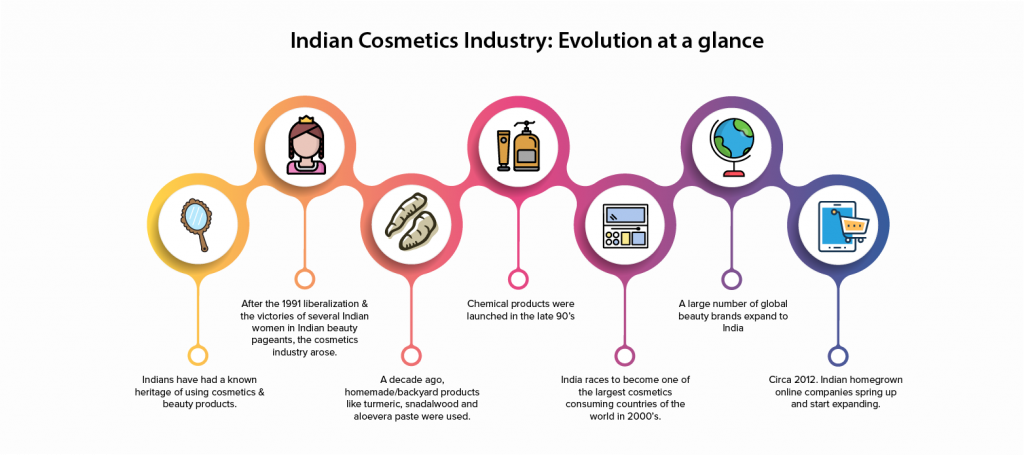

Objective
MyGlamm lays prime focus on two things when it comes to its customers: One, that all of their users must feel glamourous effortlessly. Meaning every user must be able to complete his/her buying lifecycle without any hurdles. Two, MyGlamm must be able to make every user feel valuable throughout their buying journey with them.
Simply put, MyGlamm aims at making every user’s buying experience with MyGlamm absolutely delightful, hassle-free and memorable. Clearly, customer experience is at the epicenter of their brand strategy. So, MyGlamm focused on delivering exceptional user experiences with targeted and highly-personalized marketing, which helps them:
- Drive optimum registrations
- Nurture the ideal prospects
- Convert users into buyers
- Build user loyalty
- Achieve profitable long-term growth
The Challenges
Like most online businesses, while the teams at MyGlamm were set to achieve their goals, they faced a few challenges too. The primary challenges were:
- Inaccurate user data
- Lack of a unified view of a user
- Disconnected multi-channel campaigns
- Cumbersome campaign execution
Which led to:
- Unpleasant user experiences
- Lower signups
- Poor app and web engagement
- Increased churn rate
- Plummeting cart abandonment
- Reduced purchases

Hence Myglamm began looking for a reliable and highly scalable platform that could help them execute targeted, data-backed marketing that enables one-to-one communication with users.
The Solution
MyGlamm adopted WebEngage to power its lifecycle marketing campaigns. The brand used the journey builder feature to target users with funnel-based, contextual campaigns across channels like SMS, email, web & mobile push, and in-app notifications.
After vetting a few marketing automation platforms in the market, MyGlamm decided to adopt WebEngage to power their user engagement and retention campaigns. And the teams at MyGlamm and WebEngage’s customer success team came to a consensus that having accurate and detailed user data is the way to go.
So, first things first. The user data was meticulously studied, and every new user information that came in was assigned a unique user id that gets generated by the software. This became a mandate and routine as all the campaigns fueled by WebEngage are based on unique user ids to avoid the duplication of data.
For instance, every new user that registers on the website is assigned a unique user id. When the same user returns to the website or downloads the MyGlamm app, her unique id remains the same, and all the actions she performs on multiple devices are tracked under the unique id assigned to her as a user.
As the fundamental issue was resolved, MyGlamm’s user data was organized, collated and multi-channel. Complete information about every user was now available in a 360-degree format.
Making use of the actionable data, MyGlamm focused on orchestrating meaningful lifecycle marketing campaigns and delivering these campaigns seamlessly using WebEngage’s dashboard.
The brand created different segments of users based on the user’s personas. And designed multiple journeys for these segments.

Here’s how MyGlamm tackled the challenges via different journeys.
A. Encourage registered users to make a purchase
After the first interaction that a user makes with MyGlamm, the brand would wait for 24 hours giving the user the time to understand and explore MyGlamm’s offerings.
This particular journey was targeted for the segment that consisted of users who registered and did not make a purchase within the first 24 hours of signing up.
And here’s how the journey functioned:
1. As soon as a user (in this case, Jane) entered the segment, an SMS (about glammPOINTS i.e. store credits) was sent to that user. Simultaneously, the journey also checked whether Jane was reachable on mobile push. If she was, a push message was sent on her phone.
Interesting: Push notifications can be customized differently for iOS and Android.
2. After waiting for two days, an email and a mobile push were sent to Jane (because she hadn’t made a purchase yet).
3. Jane had not made her first purchase even after a week, so an email and a mobile push were sent to her.
A user might not be convinced with what a beauty blogger or an influencer might like. But she’d want to spread the word if she gets some points in return.
This time, the hook was friendship. The user got glammPOINTS every time she referred to a friend.
4. Finally, after two weeks, the last email was sent to Jane.
The stronger hook here was: Softly nudging the user to avail the offer before it closes. The last email tempted Jane to make the purchase!
5. Users who didn’t make a purchase even after 3 weeks were automatically moved out of the journey.
This journey drove 19% conversions in the month of August. Which was almost 12% in the month of July when the journey wasn’t in place.
Interesting: Every time a user enters the segment and makes a purchase within the period that a journey is planned to run, the user is automatically moved out of the journey and is not bothered with any further communication since she’s already converted.

B. Convince abandoners to place the order
Cart abandonment is a challenge that most online businesses face. But the same users who deny (rather, aren’t motivated enough) to buy the products that they add to their carts can be encouraged smartly.
MyGlamm did just that. They built an event-triggered journey for all those users who added products to their cart but did not purchase those products within the next 30 minutes.
This journey had a number of conditions, campaigns and different wait periods, considering the nature of the target audience that this particular segment catered to.
A portion (10%) of users were moved to the control group (CG). This group belonged to the target segment (mentioned above) and entered this event triggered journey. But they tran- scended all the campaigns that were a part of this journey. No communication was sent to the 10% of users in the control group. But the conversion event would still be tracked for these users.
The conversion event was set to: order placed.
The journey included personalized communication across channels, inclusive of Web Push, SMS, Email, and Mobile Push Notifications.
Download Impact Story – Check how MyGlamm delivered exceptional user experiences
The campaigns (in this journey) included:
1. Web Push Campaigns
The hook: Sending an exit-intent web push is an instant reminder for the user to purchase the products she just added to her cart.
3. Email Campaign
The hook: Establishing a context by telling the user that this email is based on her recent visit to the brand’s website. For this particular email campaign, the difference in conversions was enormous. About 137% uplift happened in the orders placed by the users who received communication across the journey.
Interesting: Control group helps in analyzing the performance of a campaign sent through WebEngage.
4. Mobile Push Campaigns
Overall, the journey drove about 162% uplift in orders placed by the users who were a part of this journey.

C. Build brand loyalty
What makes a user happier than knowing that she already has some points (read money) in her kitty and needs just a few more to buy her favorite products?
MyGlamm stirred up its users’ excitement to buy their favorite products by utilizing this simple technique.
They created a customized journey for the segment of all registered users who had 150 glammPOINTS in their account and did not make any purchase.
Users in this segment were sent messages across web push, SMS, email, and mobile push – informing them about the glammPOINTS that the user had in their account.
Each of these campaigns had a highly-customized message. Here’s how the campaigns looked:
Email Campaign
For the email copy, a particular trending product was sent to a user with a calculated amount showing the additional amount she requires to buy THAT product after redeeming the glammPOINTS that she has in her account.
A calculating mechanism was used to calculate the exact amount a user needs to spends to buy a particular product.
The logic was:
-
- If, X = The amount a user needs to pay
-
- Y = Actual MRP of a particular product
-
- Z = Store Credits (glammPOINTS) that a user has in her account
- Then, X = (Y-Z)
So, in this email, Y is Rs. 1890 and Z that got fetched through the calculating mechanism is Rs. 1490. This means that Jane had 400 glammPOINTS in her account when this email was sent.
Interesting: With the help of a code, you can create a mechanism that automatically fetches the right product data for every user and calculates the balance amount a user needs to spend for buying a particular product.
While creating a push message campaign on WebEngage dashboard, MyGlamm defined key value pairs. Key value pairs enable businesses to customize push messages at a campaign level from within the app. The data entered in the key-value pairs is a part of the push message payload and can be accessed using push callbacks.
Interesting: Adding key value pairs help brands track the interaction via a particular push message.

6. The Outcome
Having accurate data and a unified view of the user helped MyGlamm execute the above mentioned cross-channel journeys and aided them in:
- Driving quality website visitors and understanding them
- Deriving better user details and getting app installs
- Creating user personas based on their multi-channel behavior
- Improving user lifecycle marketing
The above outcomes further helped MyGlamm achieve their goals like:
- Delightful user experiences
- Improved app and web engagement
- 6% increase in orders placed by registered users within a month
- 166% uplift in purchases by users who had previously abandoned their carts
- 137.5% uplift in conversions by users who received a personalized email about the products in their cart




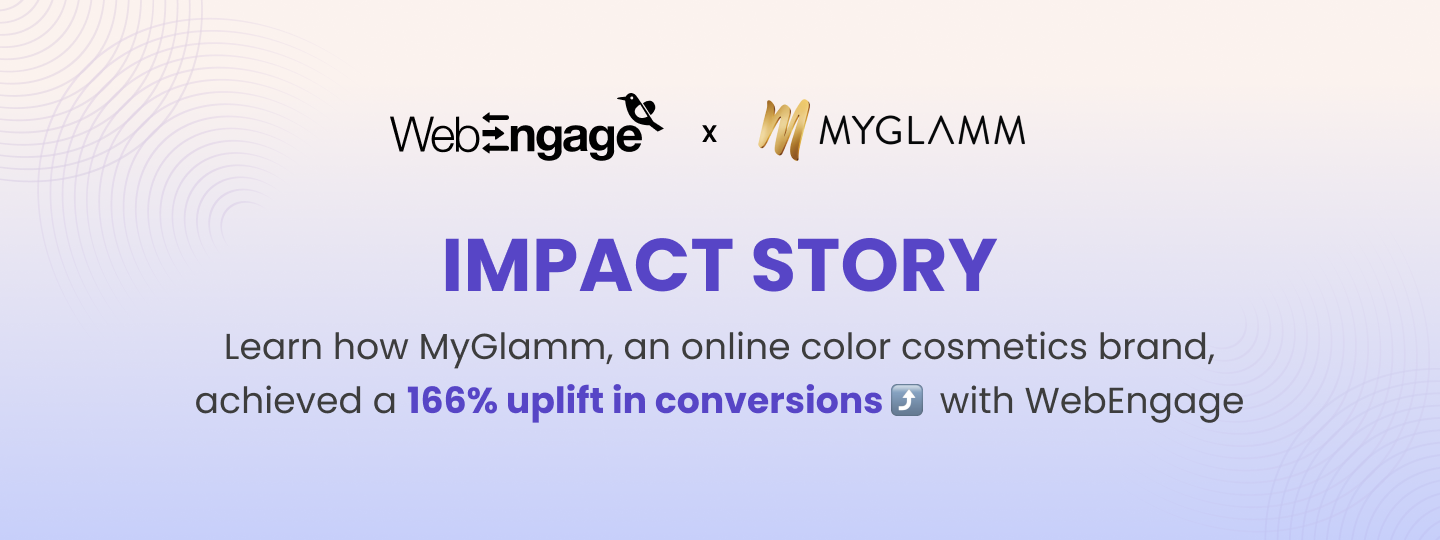


 Harshita Lal
Harshita Lal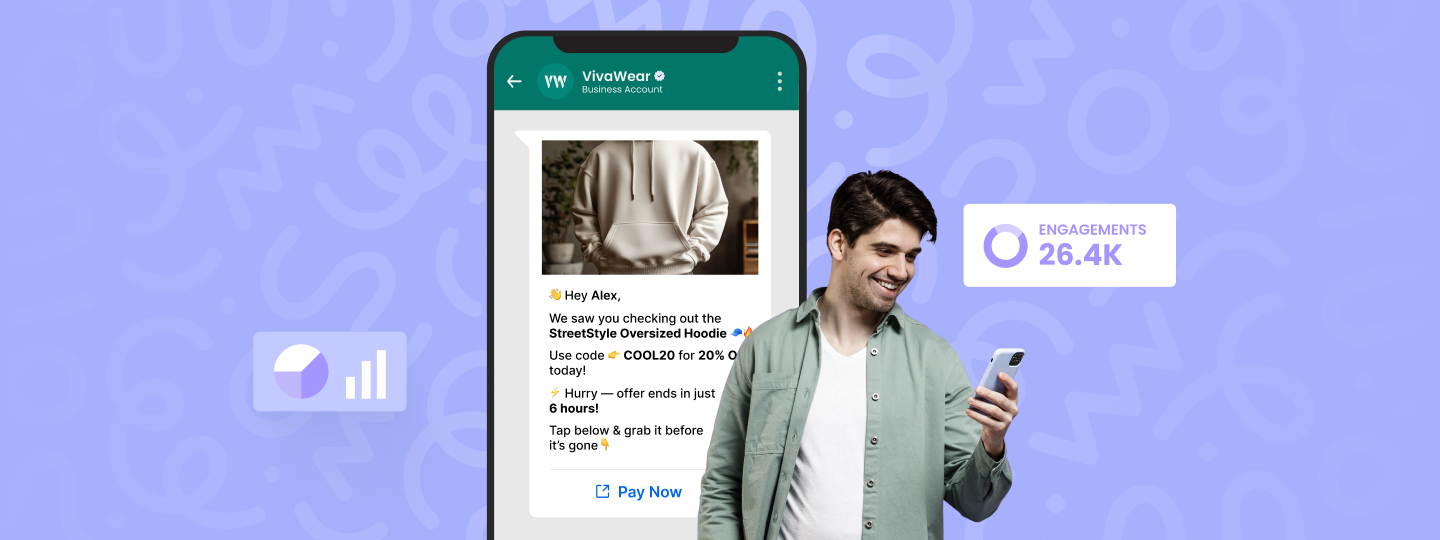

 Inioluwa Ademuwagun
Inioluwa Ademuwagun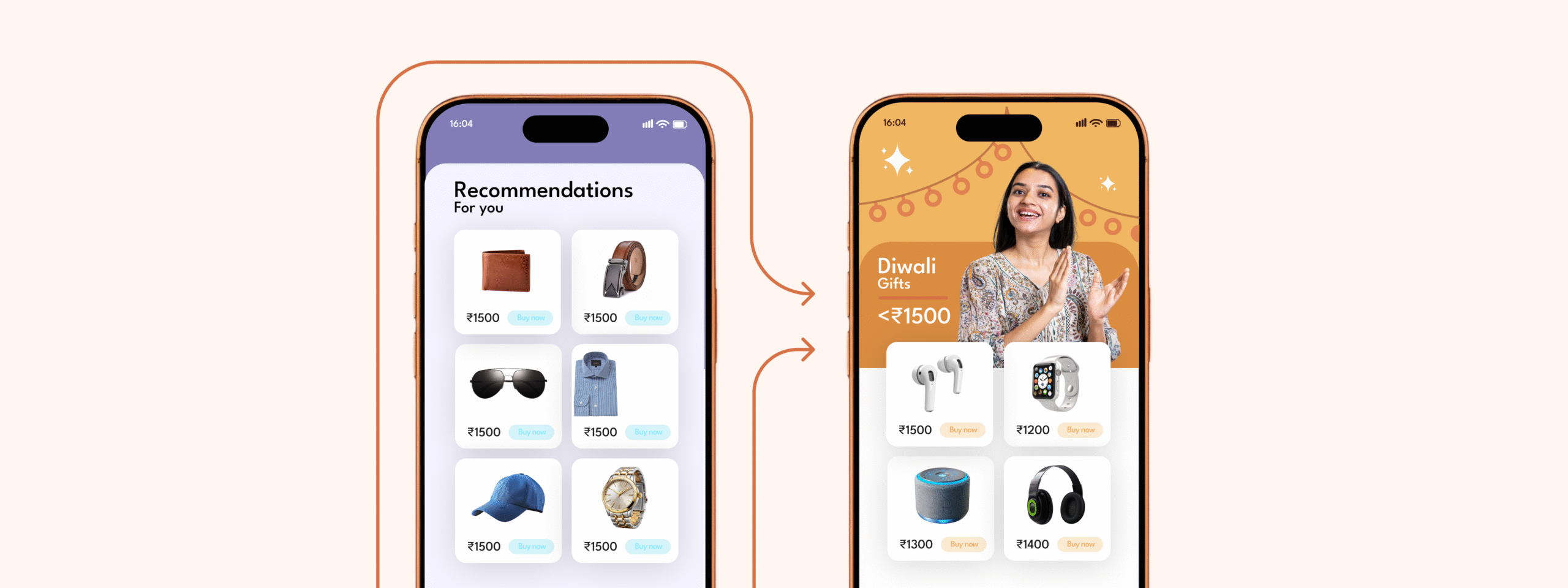
 Anmol Mewada
Anmol Mewada